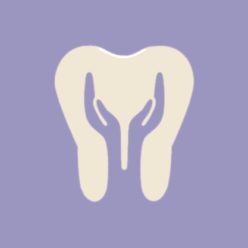Do you wake up with a sore jaw? Do you notice your teeth wearing down? Do you have chronic neck and shoulder pain problems? Do you have a feeling of fullness in your ears? Do you dream a lot at night, feeling tired during the day?
Many people clench and grind their teeth during the night and don’t even know it. This can lead to serious problems for some people. Clenching and grinding is common during times of stress and when someone has airway issues like sleep apnea. Although many people clench and grind about 10-20% develop symptoms. These symptoms can come on suddenly when the body’s ability to adapt to the habit reaches a breaking point. People can feel ringing in the ears and muscle pain in the face that radiates down to the neck and shoulder.
A misaligned bite or some other trauma (from birth to a sports collision injury) can set you up for problems that can flare up down the road. There are a variety of reasons and causes for jaw problems the public knows as TMJ. Women tend to be affected more with these issues than men. Men will clench, grind and wear down their teeth but many times are unaware because they feel no pain. The most common and non invasive way to treat “TMJ” symptoms is with custom made appliances. These are made by your dentist who will follow and monitor your progress. Many times your dentist will recommend or prescribe an anti-inflammatory or muscle relaxant to help in the treatment. Tufts University studies have shown magnesium citrate to be helpful in relieving muscle tension. Physical therapy is another way to treat tense facial and neck issues. Stretches, massages, and ultrasound can help relieve contracting muscles. Many times the ultimate therapy is a combination of a dental appliance and physical therapy. Once muscles have been relieved, the appliance can help maintain stability of jaw and neck muscles.
When jaw pain is related to a true anatomic jaw joint problem then things can be more complex. Imaging, like an MRI is useful in accessing damage to the joint and getting a good diagnosis. These issues are not as easily corrected but can be managed. In rare cases surgery maybe a consideration to help stabilize the joint, but there is no guarantee for success. The ADA has recently stated non invasive procedures should always be considered first as the standard of care.
Accessing your habits and changing a few things can be effective as well. Take breaks if you sit in front of a computer all day and do some stretches. Keep your key board low and the monitor high. Take up yoga from a certified yoga instructor. Avoid sleeping on your stomach. Avoid excessive gum chewing or opening your mouth too wide if you are prone to jaw issues. Rest your tongue behind your upper teeth and close your lips to keep your jaw slightly open and uncontracted. Make life changes to reduce stress if possible. If stress is unavoidable, take a hot shower or bath before bed time and have some chamomile tea.
